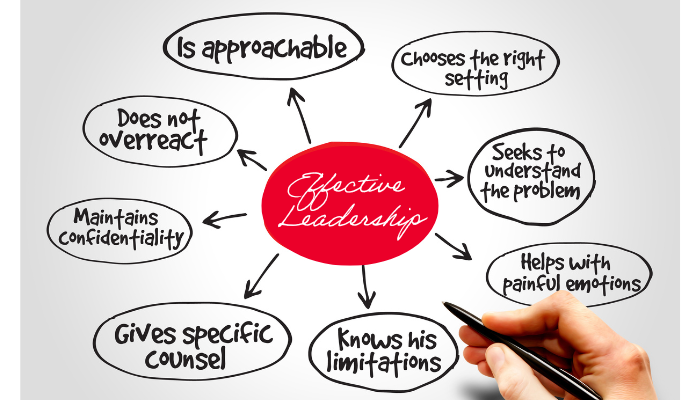
By Leather Brice, CVBL, CCFP
Effective leadership is vital for driving innovation, teamwork, and overall success in any organization. By taking a comprehensive approach to leadership development, aspiring leaders can improve their communication skills and create an environment where ideas and feedback flow freely.
At the core of impactful leadership is effective communication. Leaders need to clearly share goals and foster transparency within their organization. This builds trust and encourages team members to take ownership of the long-term vision. When everyone feels heard, they are more likely to share their ideas, leading to a more collaborative and engaged workplace.
True leaders are driven by passion and dedication to their work. This commitment not only boosts their performance but also inspires those around them. By focusing on meaningful goals instead of chasing popularity, leaders can create a culture centered on achievement. This helps align the team’s efforts with the organization’s objectives, motivating everyone to strive for excellence.
Adaptability and a willingness to innovate are also key traits of effective leaders. By embracing continuous learning and staying open to new perspectives, leaders can navigate the challenges of a changing work environment. This adaptability encourages a culture of experimentation and creativity, allowing teams to discover innovative solutions to obstacles.
An essential aspect of effective leadership is the idea of servant leadership. Leaders who prioritize the needs of their team create a supportive and positive workplace culture. By working for the benefit of their team members, these leaders foster an environment of encouragement and respect, which not only boosts morale but also strengthens team cohesion and productivity.
Building strong relationships is the foundation of successful leadership. By nurturing respect and rapport within their teams, leaders develop the skills needed to inspire and guide their members effectively. This relational approach promotes collaboration and trust, allowing teams to face challenges together and celebrate successes as a group.
By fostering these qualities, leaders can create an environment where their teams thrive. This not only drives success and innovation within their organizations but also empowers team members to reach their full potential. Ultimately, effective leadership is about creating a space where everyone can contribute, grow, and succeed together.
About the Author
